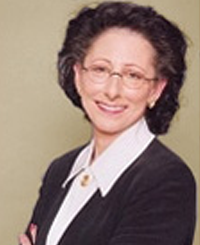WHAT\’S THE BEST THAT COULD HAPPEN
How often have you done something that you really dreaded and heard yourself saying “that wasn\’t so bad”?
On the other hand, how many times have you feared the worst about, say for example, an eldercare issue. Sure you know it\’s a problem. You see all the tell-tale signs of trouble – the car accidents (or near misses); health problems not being addressed; bills not being paid; increasing forgetfulness; inability to take care of themselves in their home. You know you should do something but because of the fear, you put off addressing the issue for weeks, months, or even years. You hope it will get better or go away but it gets predictably worse. Then the crisis hits and suddenly there are fewer and fewer options and it spirals out of control. Now it is, in fact, the worst that could happen.
So what can you do to avoid the inevitable ‘what if\’s?\’; ‘if only\’s\’; or ‘shoulda-coulda-woulda\’s\’?
1) Keep a diary about your loved one\’s situation. Seeing it in writing will help you see patterns emerge.
2) Start talking with others such as your siblings, your aging loved one\’s spouse and friends and ask them what they\’re seeing. The accumulation of symptoms will allow you to see problems sooner.
3) While you\’re at it, talk with siblings & your aging loved one\’s spouse about their take on the situation. Ideally you will also get their cooperation but if nothing else, you\’ll find where they stand.
4) Start looking at options. It\’s easier to remove the car, for example, if you\’ve identified acceptable alternate forms of transport.
5) Remember how to eat an elephant . . . . one bite at a time. In other words, determine your goals and concentrate on achieving them one step at a time.
6) Start talking with your aging loved one. The earlier you start talking, the better and easier it will be. And for all you know, they may be quite aware that there\’s an issue and may welcome your support.
7) If you don\’t know what to do or how to make it happen, before there\’s a crisis, talk with someone who does. You really don\’t have to go it alone.
8) Finally, start NOW. After all . . . what\’s the best that can happen?
© Copyright AgeWiseLivingTM 2001-2007 You can find information about Generational Coaching, AgeWiseLivingTM seminars, and to sign up for Barbara\’s monthly newsletter at http://www.agewiseliving.com/ or by calling toll-free (877) AGE-WISE. Barbara E. Friesner is the country\’s leading Generational Coach and expert on issues affecting seniors and their families. She is an adjunct professor at Cornell University, where she created and teaches “Seniors Housing Management” at Cornell\’s School of Hotel Administration.



Leave a Reply
You must be logged in to post a comment.